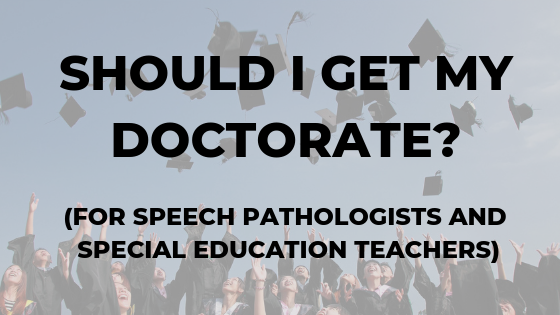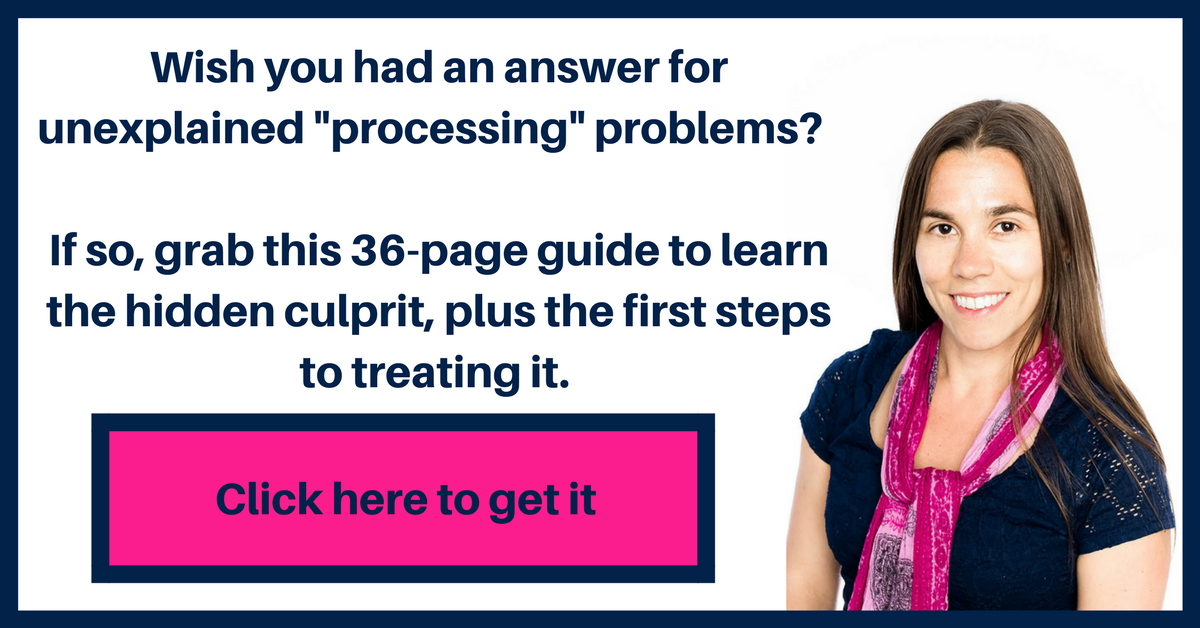Every time I ask this question on a public forum, I get a massive response.
It seems this is a question that plagues a lot of speech pathologists (and possibly teachers as well). We have the urge to keep going and pushing ourselves.
But maybe you feel like you’re barely treading water. Still paying of grad school debt. Busy with family life and a full-time caseload, and just don’t know how to fit in one more thing.
Yet still…there’s that nagging feeling and that desire to keep going because we know there’s so much more to learn.
These are things that kept Dr. Christy Borders up at night when she decided to take the leap.
Dr. Borders is my colleague and mentor, and was a member of my dissertation committee when I finished my doctoral program.
When I was scrambling to get ready for my dissertation defense in the last semester and I was freaking out that I wouldn’t get it done in time to graduate, she was one of the key players who helped me through that final push and helped me make it happen.
She specializes in working with DHH/HI students and has dedicated her entire career to making an impact on this population.
In this wide-ranging conversation with Dr. Christy Borders, we discuss ways to build language skills in students with hearing loss, as well as how to decide if it’s time to take the leap and get your doctorate.
When you listen to this interview, you’ll learn:
- What most people don’t know about DHH/HI populations (1:30).
- How DHH/HI students learn to read, write, and speak (4:45).
- The impact of waiting until 6-12 months of age to get a hearing aide/cochlear implant (6:52).
- A technique that’s showing some positive results for teaching DHH students to read (8:25).
- Why you don’t hear people using person-first language when it comes to DHH students (16:10).
- Why the term “push-in services” is a joke and what we should be doing instead (28:30).
- How to know if you should pursue a doctorate (34:30).
- How to know if you’re likely to survive a doctoral program (37:01).
- How to get someone else to pay for you to get a doctoral degree (39:00).
- The difference between an EdD and a PhD (44:25).
- What you might not know about scientists in the field of special education (and why this is actually good news) (47:40).
- Why hanging out in the teacher’s lounge is a bad idea, and what you should do instead (53:00).
- Why you SHOULD NOT read a student’s IEP before you meet them (53:20).
- The best way to start an IEP meeting (especially if you have a strained relationship with the parents) (1:03:01).
- Why on some nights, having a glass of wine may be a better idea than finishing your paperwork (1:08:00).
If you’ve ever thought about getting your doctorate or working with DHH students, you won’t want to miss this interview:
To learn more about a resource you can use to build language skills in the DHH populations, check out this free tour of The Ultimate Guide to Sentence Structure.
Inside you’ll learn exactly how to focus your language therapy. Including:
- The hidden culprit behind unexplained “processing problems” that’s often overlooked.
- The deceptively simple way to write language goals; so you’re not spending hours on paperwork (goal bank included).
- The 4 sentence types often behind comprehension and expression issues and why they’re so difficult.
- An easy-to-implement “low-prep” strategy proven to boost sentence structure, comprehension, and written language (conjunctions flashcards included).


